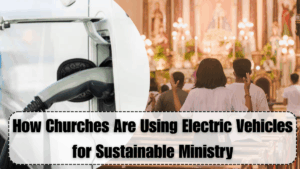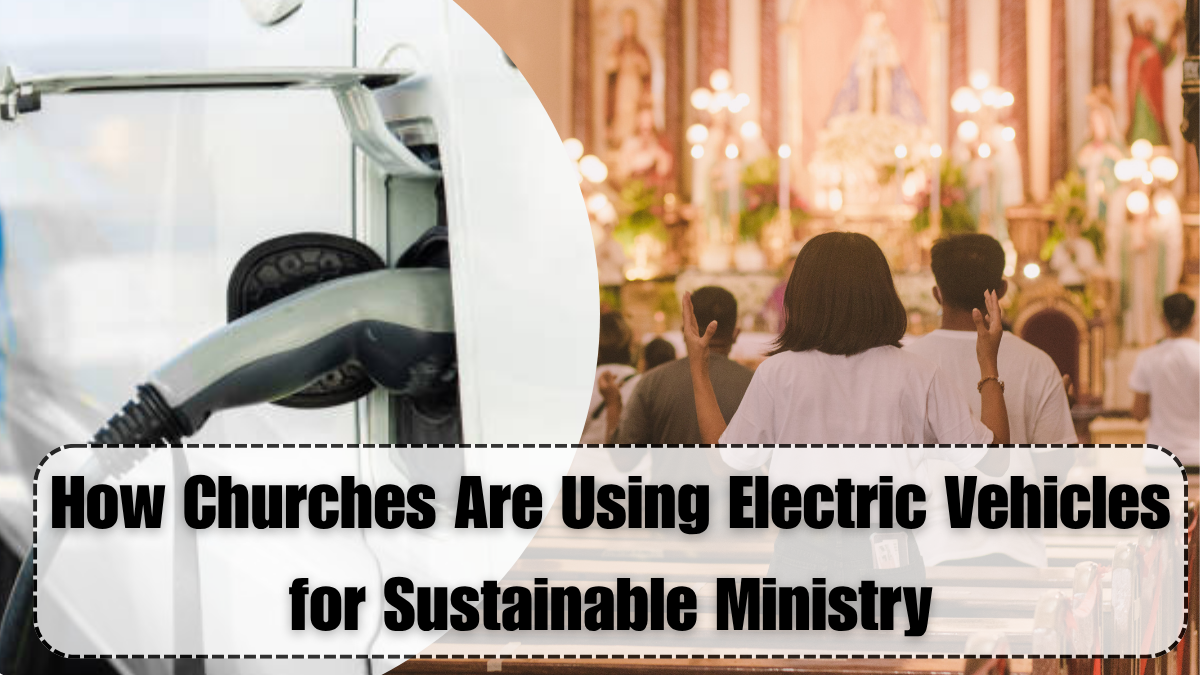In 2025, churches across the globe are no longer just spiritual centers—they are becoming leaders in environmental sustainability. Through faith-driven eco mobility, ministries and religious organizations are embracing electric vehicles (EVs) to power their outreach and operational missions. This powerful integration of faith and environmental responsibility marks a new era of church involvement in climate-conscious actions.
Whether it’s pastors commuting in electric cars, congregations investing in electric buses for Sunday transport, or ministries deploying outreach EV vans, churches are stepping up to reduce their carbon footprint while living out their faith in action.

Why Eco Mobility Is a Natural Fit for Faith Communities
Faith communities are founded on principles of stewardship, compassion, and responsibility. EV faith initiatives perfectly align with these values, offering both practical and spiritual benefits:
-
Reduced emissions = Care for God’s creation
-
Cost savings = More funds for community support
-
Quiet travel = Respect for residential areas
-
Innovation = A modern way to live out timeless values
-
Visibility = Sets an example for other institutions
For ministries committed to service, adopting faith-driven eco mobility is more than a choice—it’s a calling.
Examples of Churches Going Electric in 2025
From small rural chapels to mega-churches, church green efforts in EV adoption are growing rapidly. Some examples include:
-
Zion United Church in Ontario uses an outreach EV van to distribute food and clothes to shelters
-
St. Peter’s Ministries in Bengaluru has installed EV charging points for staff and visitors
-
Grace City Church in California runs a fully electric shuttle for elderly members every Sunday
-
St. Mary’s Youth Fellowship conducts climate-awareness roadshows using e-bikes and EV trailers
This momentum has sparked conversations across denominations and is being supported by interfaith sustainability forums.
Environmental and Financial Benefits for Churches
Using faith-driven eco mobility solutions isn’t just theologically aligned—it’s also budget-smart and eco-efficient:
| Advantage | Impact on Church Operations |
|---|---|
| Lower travel costs | Up to 60% savings on fuel and maintenance |
| Increased outreach radius | EVs allow longer travel for missions at lower expense |
| Public engagement | Builds credibility with eco-conscious community members |
| Emission-free mobility | Supports clean-air goals in urban and rural regions |
| Support from local authorities | Many governments offer grants for faith-based EV efforts |
These benefits are turning EV adoption into a key part of modern ministry planning.
Steps Churches Are Taking to Go Electric
To embrace EV faith practices, churches are taking the following steps:
-
Conducting sustainability audits
-
Replacing old diesel vehicles with outreach EV vans
-
Installing solar-powered charging stations
-
Hosting church green efforts awareness events
-
Training youth and volunteers on eco-driving and EV maintenance
Many congregations also apply for government or NGO grants that support green mobility in public service sectors.
Future of Faith and Eco Mobility in 2025
As EV infrastructure improves across countries, faith-driven eco mobility is likely to become a default choice for churches. Seminaries and theological colleges are also beginning to include environmental stewardship modules in their curriculum, reinforcing the connection between faith and sustainability.
The goal is clear: ministries want to serve not just their people—but also the planet.
FAQs
What is faith-driven eco mobility?
It refers to the adoption of electric vehicles by faith-based organizations as part of their spiritual and environmental responsibility.
Why are churches switching to EVs in 2025?
To reduce emissions, save on fuel costs, and align their actions with values of stewardship and care for creation.
Are EVs suitable for church outreach work?
Yes, many ministries use outreach EV vans for food distribution, elderly transportation, and rural gospel missions.
What are the benefits of church green efforts in mobility?
Lower costs, better public image, increased community engagement, and a cleaner environment.
Can small churches also adopt EV faith initiatives?
Absolutely. Even small congregations can start with shared e-scooters, EV ride-shares, or collaborative charging stations.
Click here to know more.
